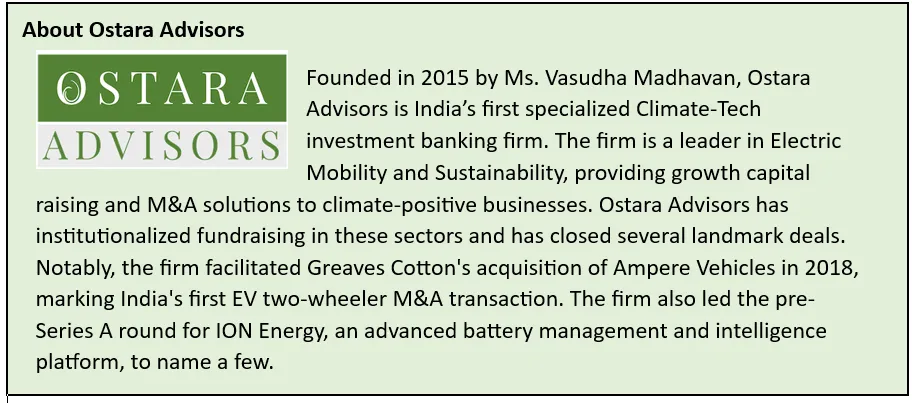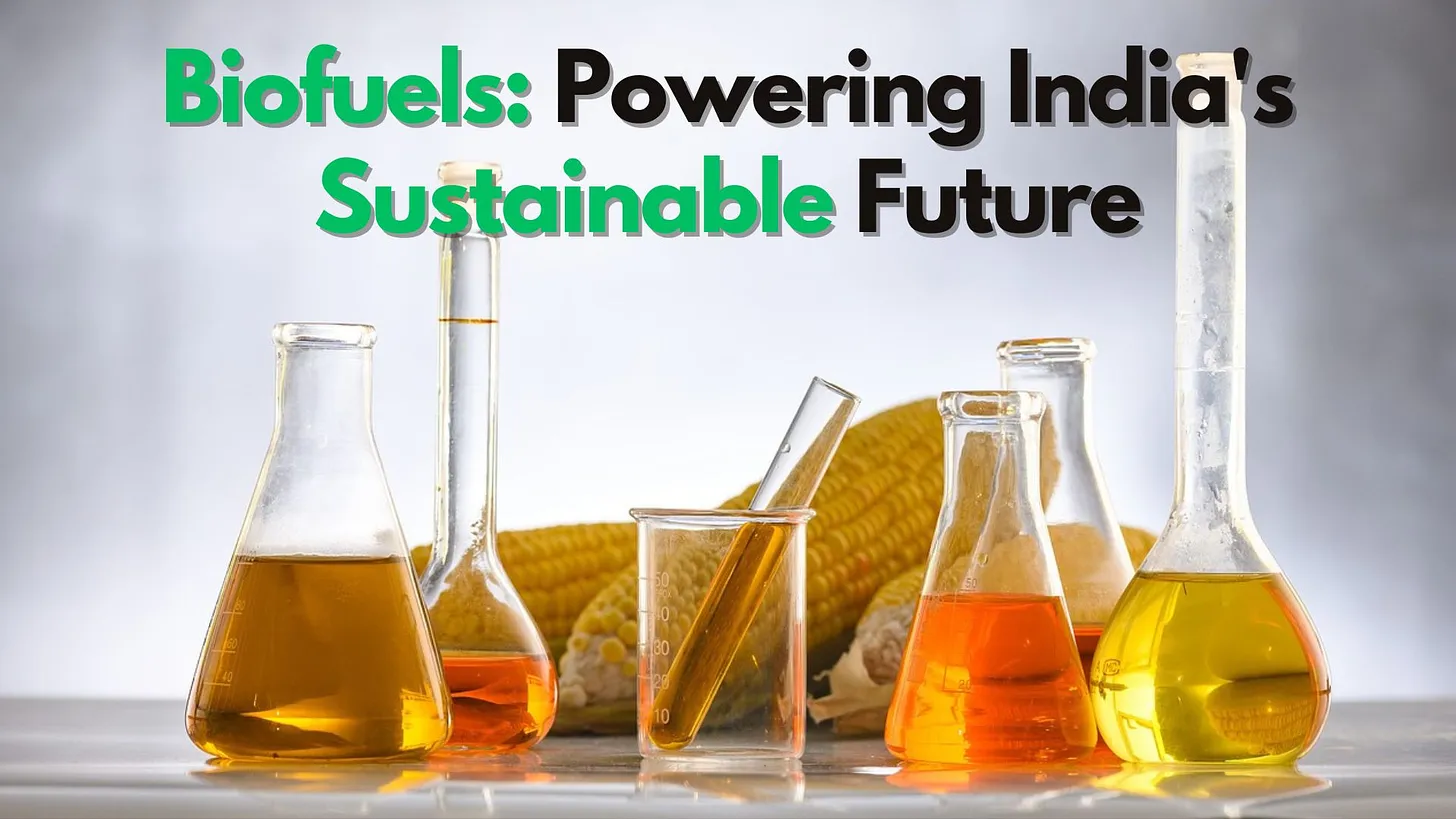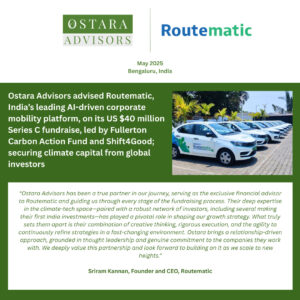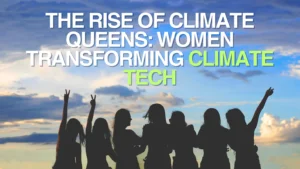Welcome to the August 2024 edition of our newsletter! In this edition, we go on a journey exploring a greener, more sustainable future where energy is harnessed from the very resources that surround us.
India’s energy landscape is undergoing a transformation as the country embraces biofuels to reduce its reliance on crude oil imports and curb carbon emissions. The biofuels market in India is witnessing rapid growth, with projections suggesting it will expand from $2.56 billion in 2023 to $10.31 billion by 2030, growing at a CAGR of 22% (CoherentMI.) With government policies like the National Policy on Biofuels (2022 Amendment) providing strong support, India is well on its way to becoming a leader in biofuel production and consumption.
What is a Biofuel?
Biofuels are renewable liquid fuels derived from biological sources including edible crops like sugarcane and corn, non-edible crops, and agricultural residues, making them a versatile energy source. Unlike traditional fossil fuels, biofuels are biodegradable and have a lower environmental impact, offering a sustainable alternative for powering transportation and industry.
Biofuels can replace conventional fuels like gasoline, diesel, and jet fuel, addressing the critical need for liquid fuels in transportation while reducing greenhouse gas emissions, thus contributing to the fight against climate change.
Generations of Biofuels: Evolution and Innovation

Image source: ScienceDirect
First-Generation Biofuels: The Foundation
First-generation biofuels, primarily ethanol and biodiesel, laid the groundwork for biofuel adoption. Derived from edible feedstocks like sugarcane and palm oil, these biofuels played a crucial role in reducing dependence on fossil fuels. However, they also sparked the “food vs. fuel” debate, as the use of food crops for fuel production led to rising food prices and deforestation, particularly in tropical regions.
First-generation biofuels, developed from food crops like corn, sugarcane, and soybeans, have origins dating back to the early 19th century, though their commercial use only became significant in the late 20th century.
Second-Generation Biofuels: Addressing Sustainability
The second generation of biofuels emerged at the dawn of the 21st century. Second-generation biofuels use non-food biomass such as agricultural residues, lignocellulosic materials, and waste oil & offer a more sustainable alternative. Technologies like gasification and catalytic cracking enable the conversion of complex feedstocks into biofuels, reducing competition with food resources and minimizing environmental impact. Second-generation biofuels are now at the forefront of India’s biofuel innovation, with solid pellets and briquettes being co-fired in thermal power plants to reduce carbon footprints.
Third-Generation Biofuels: The Future of Energy
The third generation of biofuels takes sustainability to the next level. Derived from microalgae and cyanobacteria, these biofuels can be produced without competing with agricultural activities. Algae-based biofuels have the potential for a negative carbon footprint due to their high photosynthesis rates and the ability to grow in non-arable land and wastewater. However, commercialization challenges remain, particularly in harvesting, processing, and reducing production costs. As researchers explore fourth-generation biofuels involving genetic engineering, pyrolysis and others, the future of biofuels looks increasingly promising.
In the 2000s, advancements in genetic engineering reignited interest in microalgae as a biofuel source, leading to significant research focused on enhancing lipid content and optimizing cell growth for more efficient fuel production.
The Indian Biofuel Market: A Growing Powerhouse
As per a February 2024 IEA article, India has emerged as the world’s third-largest producer and consumer of ethanol, nearly tripling its production in the past five years. Ethanol, primarily used for blending with petrol, is expected to dominate the Indian biofuel market in the coming years. However, challenges such as fluctuations in sugar and rice production, key feedstocks for ethanol, have impacted the country’s ability to achieve its ethanol blending targets. Despite this, the government’s continued support, including fixed pricing, long-term contracts, and financial incentives, ensures that the ethanol market will remain a key growth driver.
On the other hand, the biodiesel market, though smaller, presents significant opportunities for growth. Non-edible oils, Used Cooking oil (UCO), and animal fats are essential feedstocks for biodiesel production. Initiatives like the Repurpose Used Cooking Oil (RUCO) program have bolstered the collection of UCO, contributing to increased biodiesel production. While biodiesel remains a niche market, mainly supplying oil marketing companies (OMCs), Indian railways, and fleet operators, there is potential for consolidation and expansion, particularly in the European markets where demand for Indian biodiesel is strong.
Key Applications / Uses of Biofuel
The applications of biofuels are diverse and significant and include the following:
Transportation: As alternative fuels for vehicles, ethanol and biodiesel are commonly used in the transportation sector. Ethanol is often blended with gasoline, while biodiesel can be used in diesel engines, providing a renewable alternative to fossil fuels.
The transportation sector is expected to drive demand, with the rollout of E20-compliant vehicles and the continued growth of CNG-based vehicles. With established infrastructure for CNG, bio-CNG is poised to be a major player in India’s biofuel landscape.
Indian Oil Corporation Limited (IOCL) has been actively involved in blending ethanol with gasoline as part of the Ethanol Blended Petrol (EBP) program in India.
Energy Production: Biofuels can be utilised for electricity generation. Biomass, which includes organic materials such as agricultural residues, can be burned to produce heat and power. Additionally, biogas, produced from the anaerobic digestion of organic matter, can be used to generate electricity.
Husk Power Systems is an Indian company that operates biomass power plants in rural areas, using rice husks as fuel.
Industrial Applications: Biofuels are also used in various industrial processes. For instance, biodiesel can serve as a feedstock for the production of chemicals and materials, reducing reliance on petroleum-based products.
Emami Agrotech, a part of the Emami Group, produces biodiesel and engages in related industrial applications.
Heating: Biofuels can be used for heating purposes in residential and commercial buildings. Biomass heating systems utilise wood pellets or chips to provide warmth, offering a sustainable alternative to conventional heating fuels.
Thermax Limited, is an Indian company that offers biomass heating solutions for industrial and commercial use.
Food and Nutraceuticals: Certain biofuels, particularly those derived from microalgae, have applications beyond energy. Microalgae can be processed to extract valuable compounds such as omega-3 fatty acids, which are important for human health and are used in dietary supplements.
Algavista Greentech is an Indian company focusing on microalgae cultivation for nutraceuticals.
The Global Biofuels alliance
On September 9th, 2023, India launched the Global Biofuels Alliance (GBA) during the G20 summit, with key partners including Singapore, the United States, Brazil, and Italy. By January 2024, the GBA had expanded to 22 member countries and 12 international organizations, all committed to accelerating sustainable biofuel deployment. The GBA’s focus on identifying high-potential markets, accelerating advanced biofuel technologies, and creating consensus on sustainability frameworks is crucial. Despite the urgent need to scale up biofuels to meet global net-zero targets, current growth lags. However, with coordinated efforts, the GBA could significantly contribute to aligning biofuel production with global climate goals.
Global funding for the BioFuel market

Source: IFP Energies
Global investment in liquid biofuels is rapidly increasing, with funding surging from $5 billion in 2022 to an estimated $10 billion in 2023. This growth is expected to boost production capacity by over 7 million tonnes, totaling 230 million tonnes. Major investments are focused on HEFA (Hydroprocessed Esters and Fatty Acids) biokerosene and HVO (Hydrotreated Vegetable Oil) biodiesel, particularly in the United States, Europe, and Indonesia.
Notable projects include TotalEnergies’ Grandpuits plant and NESTE’s Rotterdam facility, set to enhance HEFA/HVO capacity to 16 million tonnes by year-end. Brazil and India are advancing ethanol production, with India aiming for widespread E20 use by 2025-2026. While lignocellulosic and BtL technologies are still emerging, they show potential for future growth. Overall, the biofuels market is projected to grow by 23% over the next five years, reaching 160 million tonnes by 2028, with HVO and ethanol leading the expansion.
Ostara in the Press – Aug 2024

Our Founder, Vasudha Madhavan was featured in YourStory’s 100 Emerging Women Leaders on 24th August, 2024. The article covers Vasudha’s journey in establishing India’s first climate-tech-focused boutique investment bank.
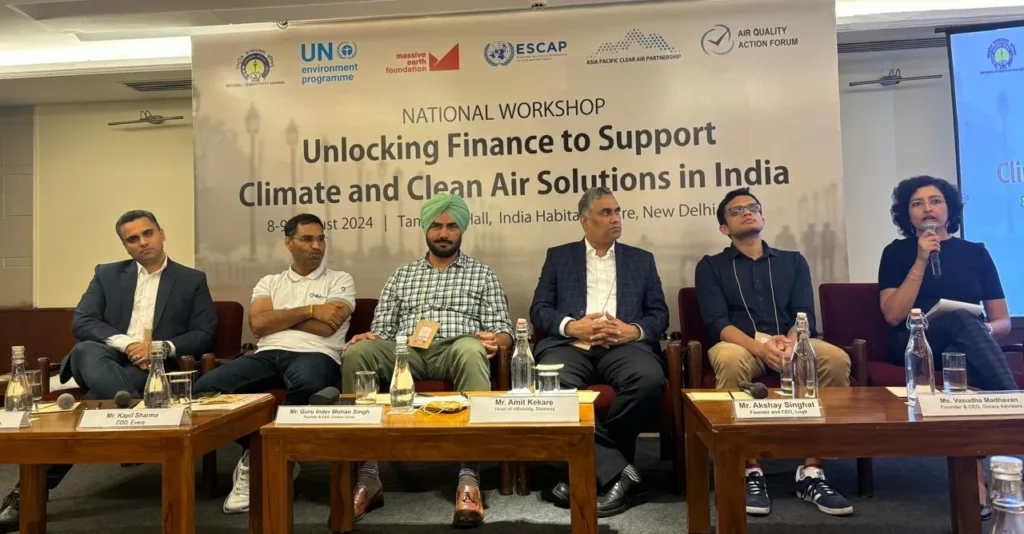
Vasudha was invited to moderate the panel discussion at ClimateNXT Delhi Edition on 9th August, 2024 at the India Habitat Centre, New Delhi. This event, co-organized by UN Environment Programme, National Productivity Council (NPC) India, Massive Earth Foundation, and United Nations ESCAP, focused on innovative strategies for mitigating air pollution and reducing greenhouse gas emissions.
Follow Ostara Advisors to stay updated with the latest trends related to Electric Vehicles, Innovation and Sustainability from India and around the globe.
